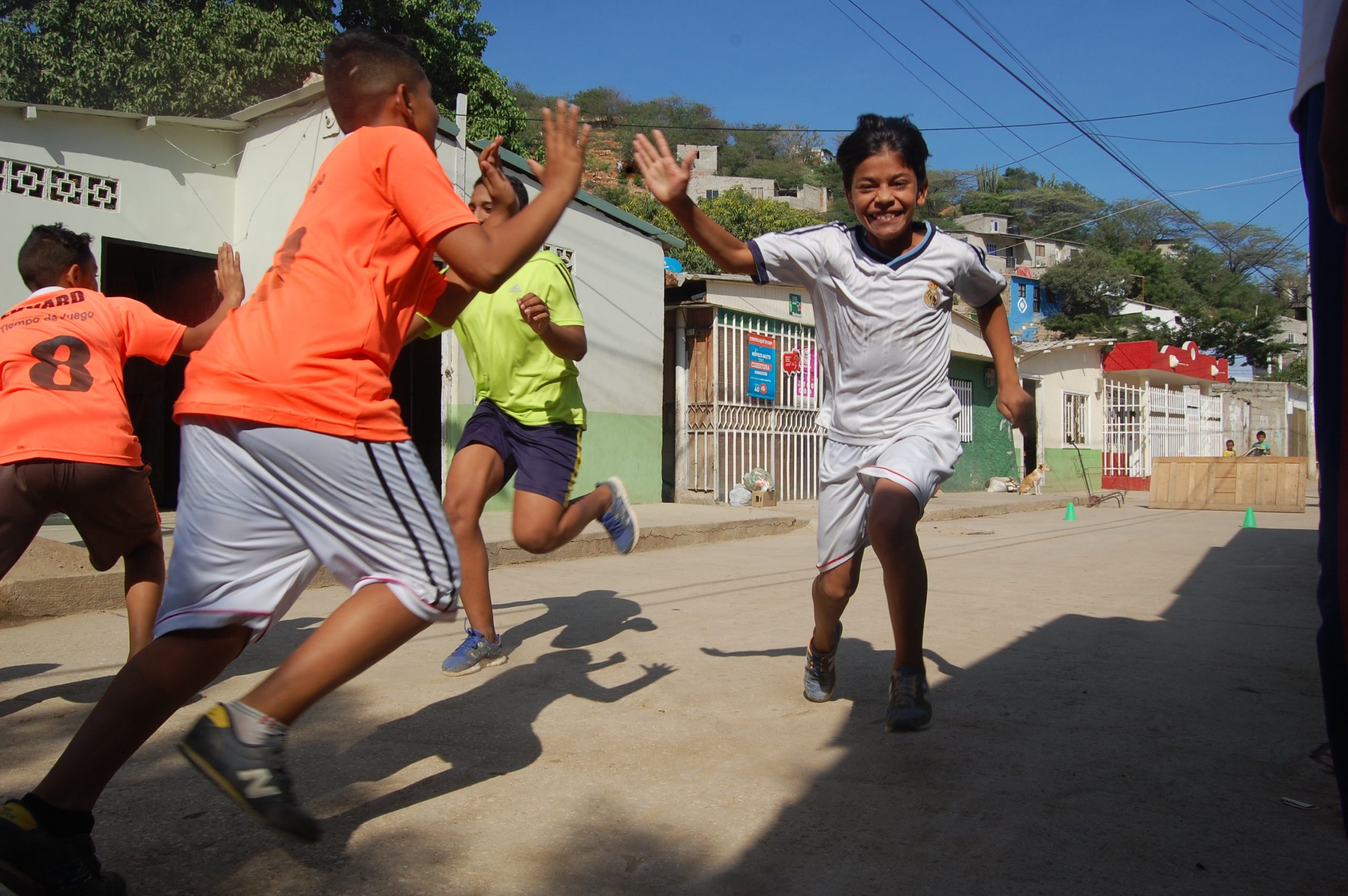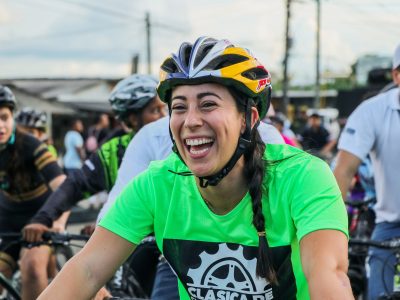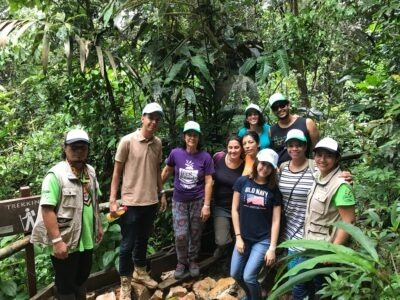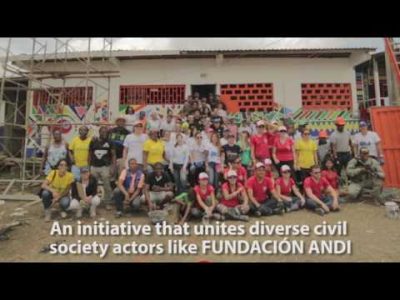
Strengthening Communities’ Capacity to Mitigate Conflict and Advance Reconciliation
Background Narrative
With a final peace deal between the government and the Revolutionary Armed Forces of Colombia (FARC) signed on November 12, 2016, Colombia is in the process of turning the page on half a century of armed conflict. Despite the promise of peace, tremendous difficulties persist in conflict-affected regions. Against this backdrop, the USAID-funded Program of Alliances for Reconciliation (PAR) took on the challenge of carving out a space for reconciliation, bringing together actors from all corners of society and transforming mentalities marked by war, intolerance, and fear.
From 2017 to the project’s close in 2022, the economic and social crisis in Colombia had been due in large part to the sustained influx of migrant populations from Venezuela, resulting in new challenges for the government and civil society with over 1.6 million migrants in Colombia. Taking into account the influx of migrants, signs of growing xenophobia, and new local conflicts, PAR drew upon its strategies and instruments to support reconciliation processes that enabled the Colombian society to better deal with the situation.
The ACDI/VOCA team passionately supported inclusive and lasting peace for the Colombian people during PAR implementation. PAR aimed to ensure that Colombians are better prepared to come to terms with the past, strengthen communities’ capacity to mitigate conflicts, and actively embrace and advance reconciliation. ACDI/VOCA implemented PAR in conjunction with various local organizations, including Corporación Reconciliación Colombia, Proyectos Semana, Pontificia Universidad Javeriana, Fundación ANDI, and other local NGOs.
Objectives
-
Enhanced the Government of Colombia’s (GOC) capacity to address truth telling and memory
-
Increased civil society’s knowledge of the consequences of the conflict and awareness of the importance of reconciliation
-
Fostered reconciliation-oriented behavioral change by forming strategic public-private alliances to support community reconciliation initiatives
Project Activities & Approaches
PAR implemented a facilitative approach underpinned by ACDI/VOCA’s understanding that Colombians must be informed and educated about the conflict (information), recognize that they are part of the solution (awareness), and be willing to participate in that process (action/change). PAR carried out the following activities:
- Provided practical support for establishing the Truth Commission (TC), provided technical assistance during the TC’s implementation, incorporated international best practices, and developed information dissemination strategies
- Provided technical assistance to the Center for Historical Memory (CHM) to deepen its geographic coverage and strengthen national and local memory and truth-telling initiatives, resulting in over 1.5 million visitors to PAR-supported Historical Memory exhibitions in Colombia, many held by community organizations.
- Partnered with GOC entities, private-sector firms, and the media to develop 1,465 multimedia messaging initiatives geared at increasing citizen engagement and promoting shifts in attitudes, perceptions, and behaviors
- Implemented a grant fund to promote diverse initiatives through which communities and individuals built trust and strengthened relationships, including dialogue, income generation, and cultural and sports activities
- Incorporated gender, social inclusion, and psychosocial support initiatives into all phases of program activities
- Held awareness-raising and messaging creation workshops to promote the generation of anti-xenophobia in communities affected by migration
Project Results
-
Oversaw USD $132.39M in investments toward reconciliation in Colombia, 43 percent of which was generated by local partners themselves, strengthening national and community-level reconciliation efforts and collectively enabling Colombians to better address the past
-
Delivered programming to, and fostered alliances between, 39,195 participants (not counting public and private partners) across 28 municipalities throughout Colombia
-
Public opinion on reconciliation shifted through effective multiple stakeholder-driven communications campaigns in favor of reconciliation, including over 200,000 publications showcasing the resilience of post-conflict communities – 98.4 percent of PAR participants reported campaigns causing a positive shift in attitudes toward reconciliation in their community, and 77 percent felt greater motivation to participate in community reconciliation initiatives
-
Trust and relationships were rebuilt and strengthened within communities and within households, and capacity to mitigate conflict and advance reconciliation increased; 23,986 participants now place greater trust in civil society organizations, and nearly as many participants trust private (19,825) and public sector (19,463) actors to a greater extent. 20,221 participants believe that working relationships between these groups have also improved.
-
438 private sector, government, and civil society linkages were forged and/or strengthened to secure one-to-one leveraging of all reconciliation initiatives, ensuring buy-in from stakeholders and long-term sustainability
-
Existing gaps—based on gender, age, ethnicity, sexual orientation, or disability— were narrowed, and 87 percent of participants reported more positive perceptions toward individuals in different identity groups
-
Vulnerable populations were included in community-based reconciliation initiatives (54 percent of participants were female, and 58 percent were youth), and as a result, hundreds of PAR partners implemented inclusive policies in their operations
Publications
Funder: USAID

Chief of Party: Jimena Niño, jnino@acdivoca-co.org
Project Specialist: Genesis Contreras, gcontreras@acdivoca.org

Project Director: Yamil Roger Nasser, yroger@acdivoca.org
related news

Cycling Events with Olympian Create New Narratives in Colombia’s Forgotten Regions
Imagine hundreds of cyclists riding through the streets as an Olympic gold medalist leads the pack. Years ago, this scene …







